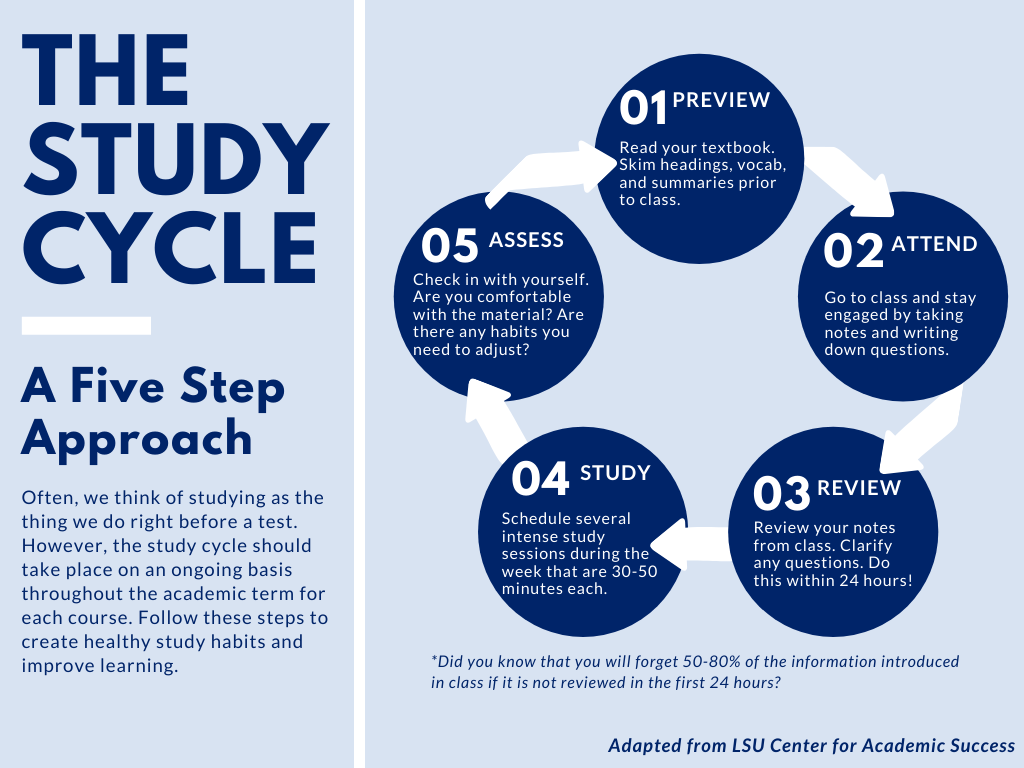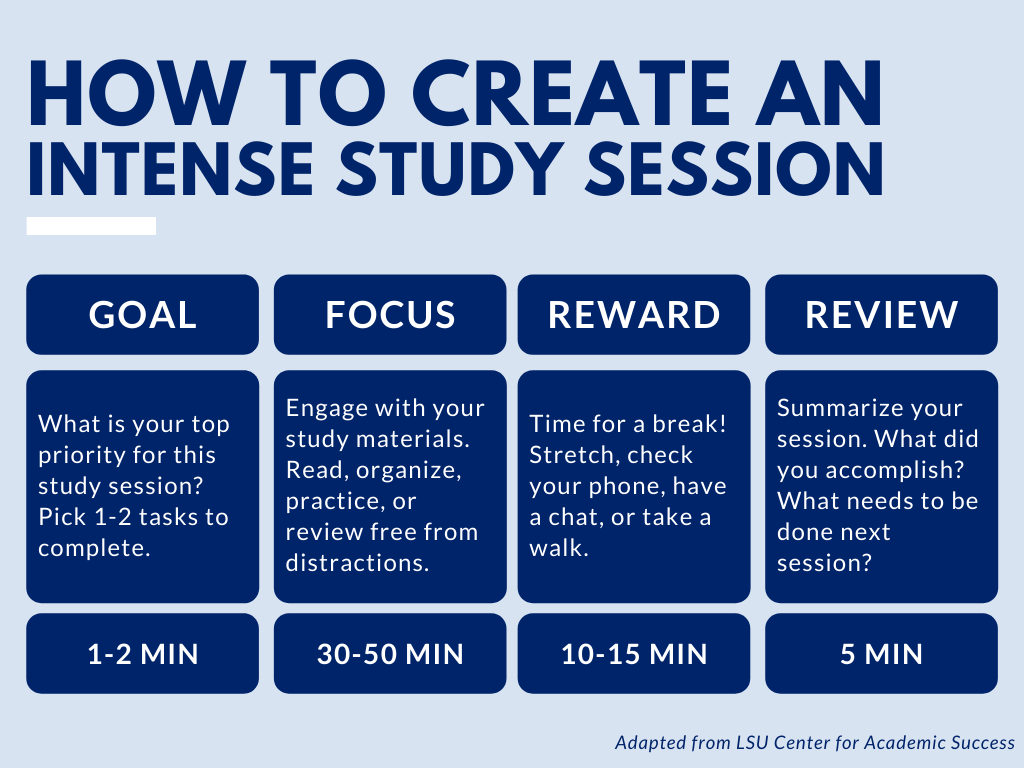Studying at the college-level
Finding the right strategies for you requires reflecting your current habits, identifying small changes you can make for yourself, trying out new approaches, and adjusting to solidify the approaches that work best for your work style.
The Study Cycle
What does studying look like for you on a day-to-day basis? The Study Cycle is a helpful model to help you stay accountable for the studying that should take place throughout the semester and avoid cramming. The Study Cycle employs metacognition, or "thinking about thinking," which helps college students maximize their learning, problem-solving, and academic performance. Students want to plan, monitor, and evaluate their understanding and performance regularly, not just on the exam!

What is a study plan? Why do I need one?
It is easy to feel like you don’t have time to create a study plan prior to an exam and it will be more time efficient to just dive in. You may find yourself sorting through a multitude of materials – textbooks, lecture slides, notes, previous exams, homework examples – and feeling overwhelming to determine which direction is best. This is distracted studying, where you spend more time preparing what to study versus actually reviewing material in a way that “sticks.”
Why should I create a study plan?
Designing your study plan
How should I design my study sessions?
Study sessions can be exhausting. With so many upcoming assignments, it can be difficult to stay started or stay focused on a particular task. In order to optimize your study time, consider the following guide that can help you identify priorities, focus on a specific task, take scheduled breaks, and keep on top of your progress.
Assessment Strategies
Assessment is one of the most important steps of your learning process. Assessment helps secure the content into memory.
- Retrieval Practice: Regularly test yourself on the material to gauge understanding and retention. Consider using practice exams or practice problems in your textbook and create an environment (don't use your book!). Don't have practice problems? Create your own using Bloom's taxonomy. We encourage spaced retrieval by scheduling out your assessments that allows time to elapse between student sessions, where you forget the material in between study sessions (that could range from one day to a week to a month).
- One Minute Paper: Write down everything you know about the topic with a time constraint. Grade yourself using your notes.
- Concept mapping: Create a visual representation of how concepts are related from memory.
- Peer Teaching: Explain topics to classmates to reinforce your knowledge and uncover areas that need improvement. Don't have a peer willing to listen? Record yourself on a video!

Tip: You should also consider the space that you are using to study. Everyone has a different style, so consider a time where you felt focused on a task and were able to increase productivity. Where were you? Consider the space's atmosphere, such as noise and traffic. Reflect on your headspace. Were you diligent in avoiding distractions, such as peers or your phone?

Exam & Assignment Analysis
An important step in mastering new material is learning from our mistakes. After you complete an assignment (homework, problem set, paper) or take an exam, you will receive a grade or feedback from your instructor. It is important to carefully review this feedback and revisit material that you missed points on. Use this template below to guide an exam review session. The same template can be modified to review other assignments, such as homework, projects, or papers.
Reviewing instructor feedback - exam
